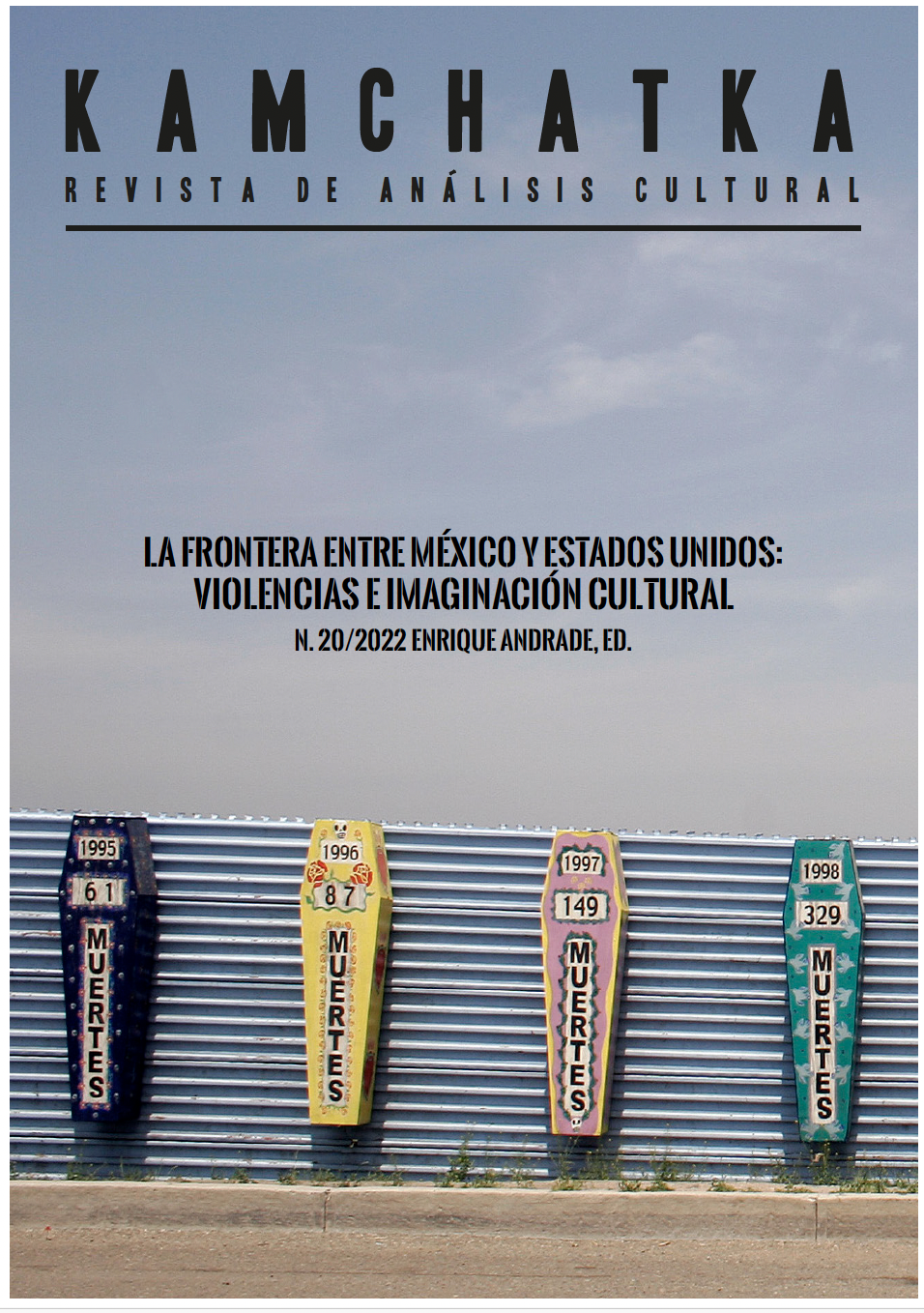A Love-Fan Card: Alfonso López Gradolí’s 'Quizá Brigitte Bardot venga a tomar una copa esta noche'
DOI:
https://doi.org/10.7203/KAM.20.22893Keywords:
Spanish contemporary poetry, Cultura del destape, Triunfo Magazine, Modernity, Late-francoist Spain Abstract
Abstract
Based on an interview Anibal Núñez for Triunfo, this article briefly describes the demystifying project attempted by some poets in late-francoist Spain which tried to criticize the erotization of consumption appropriating some of its rhetorical instruments. Against this background, I analyze Alfonso López Gradolí’s Quizá Brigitte Bardot venga a tomar una copa esta noche (1971), a long poem which shares motives and techniques with the previously mentioned. However, Gradolí’s long poem constitutes a lyrical contribution to Brigitte Bardot’s mythification which became a symbol of the “cultura del destape”. A political reading of Gradolí´s willingly experimental work shows how it join forces with the cultural and moral modernization aim by late-francoism and that what’s no other thing but a spectacular display of naked female bodies.
 Downloads
Downloads
 References
References
Ardanáz Yunta, Natalia (2018). El Cine del Destape: un Análisis desde la Perspectiva de Género. Universitat de Barcelona, tesis doctoral.
Bagué Quilez, Luis (ed.) (2018). Cosas que el dinero puede comprar: del eslogan al poema. Madrid: Iberoamericana Vervuert
Bagué Quilez, Luis y Rodríguez Rosique, Susana (eds.) (2020). Del tópico al eslogan. Discurso, poesía y publicidad. Madrid: Visor
Barthes, Roland (2012). Mitologías. Traducido por Héctor Schmucler, Madrid: Siglo XXI Editores.
Beauvoir, Simone (1962). Brigitte Bardot and the Lolyta Syndrome. Traducido por Bernard Fretchman, Londres: Four Square Editions.
E. Miranda, Julio. “Poesía concreta española: jalones de una aventura”. Cuadernos Hispanoamericanos Nº 273 (1973): pp. 512-533.
Fernández Porta, Eloy (2012). Emociónese así. Anatomía de la alegría (con publicidad encubierta). Barcelona: Anagrama.
López Gradolí, Alfonso (2013). Quizá Brigitte Venga a Tomar una Copa esta Noche. Madrid: Libros del Aire.
Labrador, Germán (2017). Culpables por la literatura. Imaginación política y contracultura en la transición española (1968-1986). Madrid: Akal.
Labrador, Germán. “Una urna puede ser el mejor preservativo Porno-política y tecno-democracia en la transición española, entre el destape y la Constitución”. Mélanges de la Casa de Velázquez 50-51, (2020): pp. 85-114. (https://doi.org/10.4000/mcv.12191)
Lavergne, Lucie. “Les collages d’Alfonso López Gradolí : dislocation, amoncellement et aporie des bouts de papier pour la construction d’une voix”. ELyra (2016) Faculdade de Letras. (https://hal.archives-ouvertes.fr/hal-02020630)
Luján Atienza, Ángel Luis (2018). “Eslogan, estribillo y epifonema. Qué poesía vendemos”. Bagué Quílez, Luis (ed.). Cosas que el Dinero Puede comprar: del Eslogan al Poema. Madrid: Iberoamericana Vervuert: pp. 325-350.
Méndez Rubio, Antonio (2004). Poesía 68. Para una Historia Imposible.: Escritura y Sociedad (1968-1978). Madrid: Biblioteca Nueva.
Millán, Fernando (2009). Escrito está. Poesía experimental en España (1963-1984). Santander: Ediciones La Bahía.
Núñez, Aníbal. “Aníbal Núñez o la fértil ambigüedad”. Triunfo vol. 507 (1972): pp. 45-46.
Núñez, Aníbal (2015). Poesía Reunida (1967-1987). Valencia: Calambur Editorial.
Pardellas Velay, Rosamna (2009). El Arte como Obsesión. La Obra Poética de Aníbal Núñez en el Contexto de la Poesía Española de los Años 70 y 80. Madrid: Verbum.
Ponce Cárdenas, Jesús. “Poesía y publicidad en España: notas de asedio.” Ticontre. Teoria, Testo, Traduzione, vol. 5, pp. 227-84.
Rodríguez Mateos, Araceli. “La función de la publicidad televisiva en la consolidación de la sociedad de consumo en España durante el régimen de Franco (1956–1975)”. Journal of Spanish Cultural Studies 16, n.o 3 (2015): pp. 155-273. (https://doi.org/10.1080/14636204.2015.1103362)
Rosetti, Ana (2004). La ordenación (Retrospectiva 1980-2004). Sevilla: Fundación José Manuel Lara
Salgado, María (2014). El Momento Analírico. Poéticas Constructivistas en España desde 1964. Universidad Autónoma de Madrid, tesis doctoral.
Vilarós, Teresa (1998). El Mono del Desencanto. Una Crítica Cultural de la Transición Española (1973-1993). Madrid: Siglo XXI.
Downloads
Published
How to Cite
-
Abstract702
-
Artículo PDF (Español)425
Issue
Section
License
This journal provides an immediate free access to the content on the principle that freely make investigation available to the public, which promotes an increased global knowledge exchange.
Unless otherwise indicated, texts published in this journal are under the license Attribution-NonComercial 4.0 by Creative Commons. These texts may be copied, distributed and publicly communicated whenever the publication’s author and title are quoted and whenever they are not used for commercial purposes. In any case, intellectual property of the articles and its potential economic rights entirely belong to its authors.
The full license can be consulted on https://creativecommons.org/licenses/by-nc/4.0/. We encourage authors to disseminate papers published in Kamchatka. Journal of cultural analysis electronically, in institutional digital repository or in their websites.





